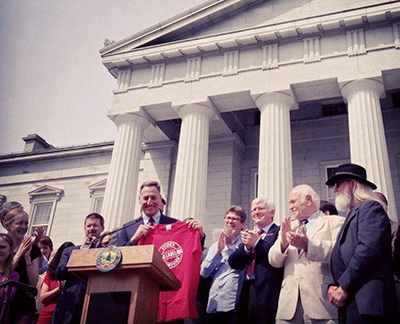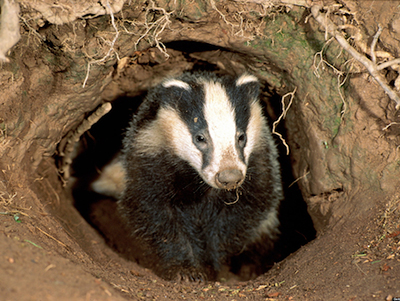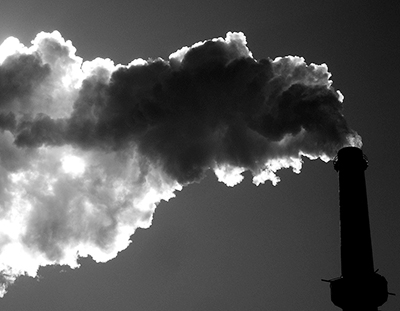
Grocery Manufacturers Association Challenges Vermont's Labeling Law The moment the new law on GMO labeling, HB 112, was passed in Vermont, the Grocery Manufacturers Association stated it planned to sue Vermont to overturn it. The association, a trade group, includes companies like Monsanto, General Mills and Coca Cola.
The government therefore has no compelling interest in warning consumers about foods containing GM ingredients, making this law's legality suspect at best." Vermont's Attorney General Bill Sorrell told local news they were expecting this backlash and have stockpiled $1.5 million to defend the law. Scotland Brings Back Beavers Three environmental groups sponsoring the Scottish Beaver Trial have successfully reintroduced beavers to Scotland, more than 400 years after the animals were hunted to extinction in the U.K., The Guardian reported last week. Considered a "keystone species," beavers' beneficial effects on the environment include controlling water flow, slowing erosion and holding back silt, plus providing habitat for other species. "But occasionally they can do things we don't want them to do," Simon Jones, the trial's project manager, told The Guardian, "so it's a species that requires careful management as well." Four pairs of beavers reintroduced five years ago have produced 14 young, significantly boosting ecotourism. Groups in England and Wales are developing similar proposals. U.K. Researches Illegal, Outdated Badger Gassing
The research, which has not yet involved live animals or dens that are in use, is ostensibly being conducted to determine whether carbon monoxide or nitrogen oxide flows better through the networked tunnels and multiple entrances. Gassing was outlawed in 1982, replaced by the controversial method of shooting in an effort to curb the spread of tuberculosis to cattle. Mark Jones, executive director of Humane Society International/U.K., told The Guardian that gassing had "already been shown to be indiscriminate, inhumane and ineffective," calling into question the use of public funds for this research. TEPCO to Dump Radioactive Groundwater Hundreds of tons of contaminated groundwater will be released into the Pacific Ocean this week from the Fukushima Daiichi nuclear power plant. Tokyo Electric Power Company (TEPCO), the plant operator, said on May 14 that the groundwater will be dumped as early as Wednesday, the Asahi Shimbun reported. TEPCO and two outside agencies have determined that radioactive isotopes in the water are below the "safety threshold." The dump is a part of the "water bypass project," which now has approval from local fisherman initially opposed to the idea. According to an official from the Ministry of Economy, Trade and Industry, 560 tons of groundwater will be released in the first dump. Stanford University Divests from Coal Stocks Trustees at Stanford University voted Tuesday to stop investing in coal-mining companies, Democracy Now! reported May 7. The University carries one of the world's largest endowments at $18.7 billion. The decision followed 18 months of dialogue with the student body.
Remarking on recent arrests of students at other universities pushing for divestment to slow global warming, Stanford junior Michael Penuelas told Democracy Now! "I think that one of the most important points to be stressed on this is that there is still time for these other universities to go ahead and take that step." While the building momentum of student activism in the divestment movement is encouraging, new assessments of glacial ice melt indicate the clock is ticking even faster than previously thought. Greenland's Glacier Melting Faster Many of Greenland's glaciers will melt away faster than expected and contribute more to rising sea levels than previously thought, concluded scientists at NASA and the University of California, Irvine, Live Science reported May 18. Scientists' updated predictions about Greenland's glacier melt came one week after similar news about Antarctica. As reported in Planet Waves' Eco newsletter last week, separate studies from the University of Washington and NASA's Jet Propulsion Laboratory independently confirmed the inevitable demise of western Antarctica's ice sheet thanks to global warming. Now, with Greenland upping the ante, the question of rising seas is no longer if, but when billions of people will need to find somewhere else to live. Weed Killer, Bug Killer -- It All Kills An accidental application of weed killer similar to Roundup has killed 75% -- or 54 acres -- of the lawns on the University of Findley in Ohio, according to the Corvallis Gazette-Times on May 16. The error occurred when a private landscaping company applied the weed killer instead of fertilizer to the lawns. The lawns most visible to the public will be re-sodded; the rest will be reseeded, which will take weeks to grow back.  The lawns at the University of Findley in Ohio have fallen victim to a massive mistake. The irony of how the school takes so much pride in the appearance of their lawns ended up with weed killer destroying them. Photo by Randy Roberts.
Planet Waves Monsanto Watch (ISSN 1933-9135) is published each Tuesday evening in Kingston, New York by Planet Waves, Inc. Editor and Publisher: Eric Francis Coppolino. Business Manager: Chelsea Bottinelli. Web Developer: Anatoly Ryzhenko. Research, Writing and Editing: Planet Waves Monsanto Watch is produced by a team consisting of Hillary Conary, Elizabeth Michaud, Amanda Moreno, Amanda Painter, Amy Silver, Carol van Strum, Len Wallick and Chad Woodward.To unsubscribe, click here e Wiki | Friends | Editors | Contact Us Copyright © 2013 by Planet Waves, Inc. All Rights Reserved. Other copyrights may apply. Some images used under Fair Use or Share Alike attribution. |


